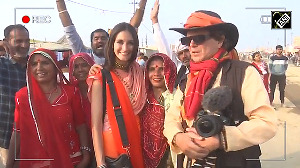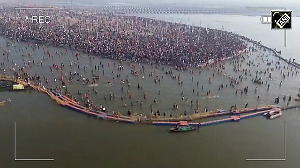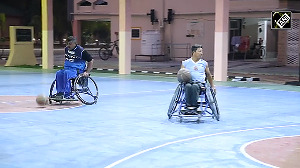"We believe it's possible," Kim Jin-sun, who is also governor of the Kangwon province in South Korea, told Reuters in an interview.
"A joint national team is a possibility we want to see realised. Personally, I'm convinced that this will work."
North and South Korean athletes marched together under a flag of unification in the opening ceremony at the Sydney Olympics in 2000 and again at last year's Asian Games, but then competed as two separate teams.
"We could go much further than in Sydney, with a joint national team, joint sports training camps and a joint cheerleading squad," said Kim.
The International Olympic Committee's evaluation commission reported earlier this month that all three candidate cities -- Pyeongchang, Salzburg in Austria and Vancouver in Canada -- were capable of hosting the Games.
There are some concerns over the security situation on the peninsula, where the two Korea's have technically been at war since the 1950s.
Tensions have heightened since U.S. officials said last October that North Korea was pursuing a nuclear weapons programme and escalated after Pyeongyang withdrew from a global nuclear non-proliferation treaty.
North Korea took little or no part in last year's World Cup, co-hosted by South Korea and Japan, not even broadcasting the games.
Pyeongchang officials are hopeful that a 2010 Games in their city will be different.
"Talks between North Korea and South Korea took place on a ministerial level on April 29," Kim told Reuters.
"North Korea publicly announced that it would support the bid and would co-operate for a successful Pyeongchang bid. We believe there will be further talks in this direction.
"We know that others are concerned about the situation but we are not concerned.
"We saw that in the 1988 Seoul Olympics that tensions were actually relieved. The two Koreas became closer thanks to the Games.
"We do not foresee any security issues, no war that would prevent us from organising a very good Games."








 © 2025
© 2025